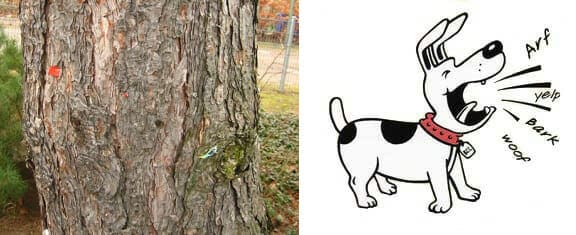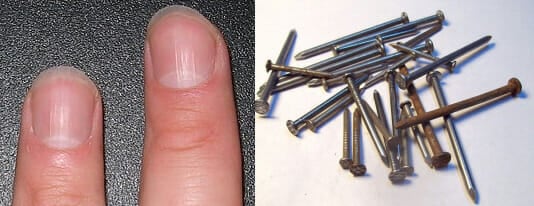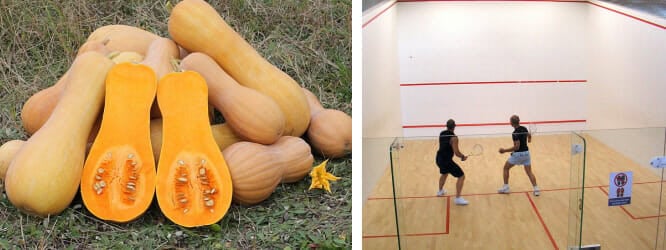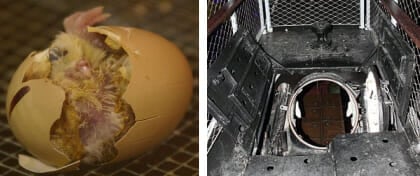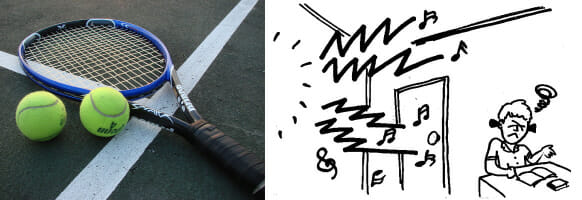Learning English can be fun. It can be daunting. It can be empowering. It can also be confusing, on occasion. But one thing it definitely isn’t is boring. Even the most fluent English speakers are often surprised when they discover something new about the language: a grammar rule brought to their attention for the first time, a word that they’d never come across before or, even more surprisingly, a familiar word used in an unexpected way! Yes, it is quite common for one English word to have two (or more) completely different meanings.
The way to tell these same-spelling, different-meaning words apart is to pay attention to the context in which they are being used. This will make much more sense when we see these words in action, so let’s look at some examples.
Here is a word that has more than one meaning:
Mine
- as a noun: a place underground from where minerals are extracted
Peter has been working at a coal mine since April. - as a possessive pronoun: to show possession
This is your bag, not mine.
Isn’t that interesting? The same word—mine—is used in both example sentences, but it means two entirely different things in each.
Here is a list of ten other English words with more than one meaning:
1. Interest
- as a noun: wanting to learn or know more about something
She developed an interest in programming after taking a course in college and now she is a
professional programmer. - as a noun: additional money charged on a borrowed sum
I am paying a high rate of interest on my home loan. - as a verb: to arouse curiosity or attention
We built interest in our product by outlining its many benefits on our social media channels.
2. Date
- as a noun: the day of the month or year
We still haven’t set a date for the ceremony. - as a verb: to show the age of something
This food at this restaurant is delicious but the old-fashioned décor really dates it.
3. Engage
- as a verb: to be involved in some work or an activity
The students hope to engage in a lively discussion with the visiting professor. - as an adjective: to have formally agreed to marry someone
The engaged couple shared the good news with their friends and family.
4. Leave
- as a verb: to go away from somewhere
Ali leaves for Delhi soon. - as a verb: to remain
The ink will leave a stain on my shirt. - as a verb: to deposit or deliver
The delivery person leaves Sharmila’s parcels with her neighbor. - as a noun: to be absent from work or duty
Gunjan is at home on leave today. She will not be attending the meeting.
5. Novel
- as a noun: a prose, fictionalized narrative in the form of a book that often tells a complex
story with characters and action
My mother’s novel about three generations of women from a small town has won the National Book Award this year. - as an adjective: something that is unique and interesting
I discovered a novel way to spend less money and save more
6. Park
- as a noun: a public garden or area for recreation
I am taking my children to play in the park today. - as a verb: to bring a car or vehicle to a stop for a period of time
We are leaving for the concert now so that we get a good spot to park the car.
7. Play
- as a verb: to engage in an activity or sport
We are going to play football today.
My band is playing at the City Club on Saturday. Why don’t you come check us out? - as a verb: to act in a dramatic production
I am playing the role of a politician in my next film. - as a noun: a theatrical production
Hamlet is my favorite play of all time.
8. Right
- as an adjective: morally fair, good or proper
The right thing to do now would be to apologize for your mistake. - as a noun: morally right or just.
He doesn’t seem to understand the difference between right and wrong. - as a noun: something one has legal or moral claim to
As a citizen of this country I have voting rights. - as a noun: the direction or location of something
If you look to your right, you will see the Museum of Natural History.
9. Run
- as a verb: to move faster than while walking
Don’t run down the street, that’s dangerous! - as a verb: to go somewhere in urgency or distress (not literally “running”, necessarily)
Even as an adult, I run to my mother with all my problems. - as a verb: to contend in a race of some kind
I intend to run for President four years from now. - as a noun: a continuous spell of a something
Souvik has a had a run of bad luck this year.
10. Type
- as a noun: a category of things or people that share something in common
They sell all types of fabric in that store. - as a verb: to write something on a keypad by pressing keys
Wow! You type very fast!
Now that’s a lot of different meanings for only a few words, isn’t it? And if you’ll believe it – many of these words can be used in even more ways than the ones listed here. But don’t be overwhelmed, a good online or print dictionary will help you find all the meanings of any English word you might encounter. And the more you read and speak in English, the stronger your vocabulary will become.
Here’s another great idea – to really power up your vocabulary try a Burlington English course! We have expert teachers on hand to guide you with our spoken English training courses that will take your language learning journey to the next level.
Polysemous English words — Wall Street English. There are many English words that are pronounced and spelled exactly the same, but have completely different meanings. … But you get a double benefit, as marketers would say: several new English words at once to replenish the vocabulary for the price of one.
According to the Guinness Book of Records, the English word with the most meanings is set. It has 430 values. Here we will look at common examples of the meanings of ambiguous English words.
What words in English have multiple meanings?
And in order to read articles in English on your own and not feel discomfort, come to study at Skyeng.
- Run: 645 values …
- Set: 430 values …
- Go: 368 values …
- Take: 343 values …
- Stand: 334 values …
- Get: 289 values …
- Turn: 288 values …
- Put: 268 values
Why does one word have many meanings in English?
The English language is notable for the fact that a large number of words are polysemous. The linguistic name for this phenomenon is ‘polysemy’: from the Greek words ‘poly’ — ‘many’ and ‘sema’ — ‘meaning’. This very polysemy leads to our mistakes, misunderstanding and misinterpretation. … Their different meanings do not surprise us at all.
What’s the longest word in the English language?
The longest word found in the main dictionaries of the English language is pneumonoultramicroscopicsilicovolcanoconiosis, which means lung disease from the inhalation of very small silica particles of volcanic ash; from a medical point of view, the disease is similar to that of silicosis.
What are unambiguous example words?
In modern Russian, there are words that have the same lexical meaning: bandage, appendicitis, birch, felt-tip pen, satin, etc. Such words are called unambiguous or monosemantic (gr.
What word in Russian has the most meanings?
Polysemous words can be among words belonging to any part of speech, except for numbers. Most polysemous words are observed among verbs. The word «go» can be called «champion» in terms of ambiguity. It has more than 40 meanings, and the verb «pull» has more than 20.
How to determine the meaning of a polysemantic word?
A word that has several lexical meanings is polysemantic. One meaning is direct, the rest are portable. A striking example of a polysemantic word is a key (spanner, treble, spring, key from the lock). Any independent part of speech can be polysemantic: a noun, an adjective, a verb, etc.
What are words with two meanings called?
Words that have two or more meanings are called polysemous. Words that answer the same question and have a similar meaning are called synonyms. Words that answer the same question, but have the opposite meaning, are called antonyms.
What are grade 2 polysemous words?
Polysemous words are words that have two or more lexical meanings. Explanatory dictionary — a dictionary that provides an explanation of the lexical meaning of a word.
Why are there so many synonyms in English?
Why are there so many synonyms in English?
It’s one thing when synonyms convey the subtlest shades of moods, qualities, intentions. … Third, you can practice your English listening skills once again — a little exercise for those seeking to improve their skills.
How many English languages?
Living languages
| Language | A type |
|---|---|
| English | West Germanic languages |
| Welsh | Celtic languages (British languages) |
| Scottish (Germanic) | West Germanic languages |
| Irish | Celtic languages (Goidel languages) |
What words refer to Homonyms?
Homonyms are words that match in sound and spelling, but have different meanings:
- glasses in a beautiful frame;
- score points in the game.
How many letters are there in the largest English word?
The longest words in English The longest word that can be found in the English dictionary contains 45 letters and calls the disease silicosis: Pneumonoultramicroscopicsilicovolcanoconiosis.
What does the word tetrahydropyranylcyclopentyltetrahydropyridopyridine mean?
Tetrahydropyranylcyclopentyltetrahydropyridopyridine is a 55-letter word describing a substance according to the patent of the Russian Federation No. 2285004. The word denoting age includes a numeral, spelled together, and the basis «-years».
What does the longest word in the world look like?
In the Guinness Book of Records, the 1993 edition, the word «X-ray electrocardiographic» was named the longest. It consists of 33 letters. In 2003, the word changed — «high-level discerning.» There are already 35 letters in it.
Download 500+ English Phrases
A number of English words are spelled the same way and pronounced the same way, but have different meanings.
Easy Vocabulary Words
bark
The noun bark refers to the outer covering of a tree. The verb bark refers to the sound a dog makes.
nails
The hard parts on your fingers and toes are your nails (you can also say fingernails and toenails, more specifically). Nails are also thin, sharp metal pieces used in construction.
jam
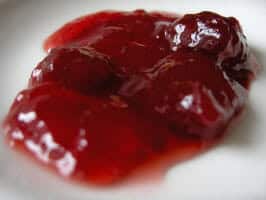
The verb jam means to put something into a space that is too small for it. For example you would jam a week’s worth of clothes into a small backpack.
A traffic jam is when the cars on the road are very slow or stopped.
pool
A pool (or swimming pool) is a man-made area of water, for swimming. Pool also refers to a game where you try to put the colored and numbered balls into the holes around the edges of the table. It can also be called billiards.
mine
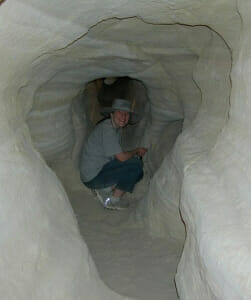
Mine is also a noun. It can refer to the place where minerals are dug out of the earth (this activity is called mining, and the people who do it are called miners).
A mine or landmine also refers to a bomb that is buried underground; it will explode when someone steps on it or drives over it. These are used in war.
Intermediate Vocabulary Words
bolt
A bolt is a type of metal fastener. The word bolt is also used for a single ray of lightning (a lightning bolt). Finally, bolt is a verb meaning to run extremely fast.
season
A season (noun) is a period of the year with a particular climate/weather (spring, summer, fall, winter). The verb season means to apply spices or flavorings to food. These spices or flavorings are called seasonings. For example, you might season a chicken before roasting it in the oven.
novel

The word novel can also be used as an adjective to mean especially new, unusual, or different. For example, a novel approach to solving a problem.
draft
The noun draft refers to a current of air into an enclosed space. For example, if there’s a space under your front door, there will be a draft in the house and it might get cold.
Draft as a noun also refers to a version of a document, plan, or drawing. A rough draft is a version that has not yet been revised, and the final draft is the final version of it.
If a country has a draft, it means the citizens must obligatorily participate in the military. Draft can also be a verb in this case – a person can be drafted to serve in the military.
squash
The word squash refers to a family of vegetables that have hard exterior shells, and we eat the inside part. The picture shows just one type of squash; there are many.
Squash is also an indoor sport played with rackets and a ball.
Finally, the verb squash means to crush something (compress/destroy it with pressure). You would squash a spider if you saw it crawling across your kitchen floor. If you put something heavy on top of your bread when loading your grocery bags, the bread would get squashed.
Advanced Vocabulary Words
buckle
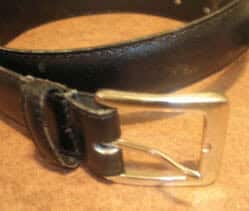
The other meaning for the word buckle is to collapse, especially under a lot of weight or pressure. For example, a person’s legs might buckle if they faint (become unconscious). If you buckle under the stress or your job, it means you break down emotionally.
current
The adjective current describes something that is modern or happening now.
Current as a noun refers to the direction and speed of flow of a liquid (such as water in the ocean or in a river), gas, or electricity.
harbor
A harbor (noun) is a sheltered area of water that is deep enough so that ships can anchor there.
The verb harbor means to provide shelter. For example, it is a crime to harbor a fugitive (a criminal who is running away from the police or legal authorities). You can also harbor negative feelings such as resentment or a grudge, meaning to keep those feelings alive inside you.
hatch
Hatch (verb) refers to the process of a baby bird coming out of its egg.
A hatch (noun) is an opening in the floor, ceiling, or wall of a ship or aircraft, often having a door on hinges.
racket
A racket is a piece of sports equipment containing a round frame and netting – used in tennis, squash, badminton, and other games.
The noun racket also means loud, often chaotic noise. For example, how can I study when the party next door is making a racket?
Get a free e-book when you sign up for English lessons by e-mail:

José is in his third and final week with me on a home stay full immersion course and has come to the conclusion that the English Language is extremely confusing and frustrating! Especially when it comes to all those words that have multiple meanings. I have to confess that he has got a point.
Take the word “run” for example. It has 179 meanings according to Dictionary.com whilst the word “take” has 127 definitions! The following infographic that was compiled by Kaplan International together with Dictionary.com highlights the 10 English words with the most meanings in the English Language. You can view this infographic here on the Kaplan website.
Kaplan has taken each word and categorised them according to the different parts of speech, for example, verb, noun, adverb, adjective and so on as well as verb phrases and idioms. As this list is very long, I’ve decided to break this list in two parts.
Part 1 will deal with the first 5 words. I’ve shown some examples of the different verb and noun meanings and verb phrases for each word.
1. RUN
Verb
- My dog loves to run about in the park (move quickly with legs)
- She runs a very successful business (manages)
- The bus company runs a regular weekend service (offer a service)
- Don’t leave your car engine running/ try running the computer programme and see if it works (machine: working)
Noun
- I always go for a 10k run in the mornings.
- The play has had a successful run in the West End. (a period of time)
- I do the school run every morning and my husband does it in the afternoon (a journey that a train, ship, car and so on does regularly)
Verb Phrases
- Her withdrawal meant that her opponent was given a clear run for the nomination (you can progress without anyone stopping you)
- He gave Tom a good run for his money (competing so well with someone that they cannot defeat you)
- He is on the run from the law (trying to escape or hide from the police)
2. TAKE
Verb
- Don’t forget to take an extra pair of shoes (move something or someone from one place to another)
- Take a deep breath ◆ James took a sip of his drink ◆ I took a quick look at the audience (to perform an action or series of actions)
- I took a course in origami at college ◆ I’ve taken my driving test three times (to study or take an exam in a particular subject)
Verb Phrases
- I like chocolate but I can take it or leave it (to not care whether you have, see or do something – informal)
- It takes all sorts (used for saying that you find someone’s behaviour surprising or strange but will accept it – spoken)
- Take it from me, this restaurant is excellent. (used to emphasize that what you’re saying is true and people should believe it – spoken)
3. BREAK
Verb
- Be careful that you don’t break those glasses (separate into pieces by dropping)
- If you break the speed limit, the penalties are high ◆ break the law. (don’t obey rules or the law)
- When the news first broke, he was no where to be found ◆ breaking news ( if news breaks, it becomes publicly known)
- Why don’t we break now and meet again after lunch? (stop what you’re doing for a period of time)
Noun
- Doctors and nurses often work very long hours without a break ◆ Let’s take/have a break.
- This could be the lucky break he’s always wanted (an opportunity that helps you achieve success)
- She decided to make the break from marketing after eighteen years (a time of major change in one’s life).
Verb Phrases
- He’s been breaking his back getting the house ready in time for the baby’s arrival (working very hard)
- I think we’ve broken the back of this project now. (British English – to finish the hardest part of a task)
- In their first year, the company broke even. (when a company doesn’t make a profit or a loss)
- I want to break free (as sung by Freddy Mercury – to escape from someone or something that is holding you or controls you)
4. TURN
Verb
- She turned around and smiled at me (change position)
- When you get to the junction, turn right (change direction)
- She could not concentrate on her book. All she seemed to be doing was turning the pages without reading them.
- After years as an amateur dancer, she turned professional ( change and do something different)
- It has turned cold again ( change and become something else)
Noun
- Oh no, is it my turn again to wash the dishes?! ◆ Is it my turn to roll the dice? (in a group and it’s your time to do something)
- The debate over drugs in sport took an unexpected turn yesterday ◆ The situation took a turn for the better/worse (a change in a situation)
- He took the wrong turn and that took him miles away from his destination (change of direction)
Verb Phrases
- He was stopped at every turn by the rigid rules (wherever or whenever someone tries to do something)
- He did her a good turn by offering her the job (an action that helps someone – also applies in the opposite “a bad turn”)
- I hope I’m not speaking out of turn, but I preferred the original version (to say something that you shouldn’t say in case you offend someone or you have no right to say it)
- The mansion was built at the turn of the century ( the time at the end of one century and the beginning of the next)
5. SET
Verb
- “Tea is served,” he told them and set the tray on the table. (put something in a position)
- I’ve set the alarm for 6am ◆ You can set the iPhone so that it does an automatic backup (to make equipment ready)
- Have you set a date for the wedding? (to decide when something will happen)
- The Bank of England sets the interest rate ◆ They set the price of the house too high. (to decide the price or value of something)
- I have set the team three challenges/goals/objectives/tasks (to give someone something to achieve)
Noun
- a set of keys ◆ a set of guidelines ◆ a complete set ◆ a chess set ( a group of things)
- the literary set ◆ the jet set◆ a set of friends (a group of people that share the same interests)
- a film set ◆ a stage set (theatre, film – place where a film or play is made)
Verb Phrases
- The drivers’ demands were not met, setting the stage for a prolonged transport strike (create the conditions for something to happen)
- They are a company that has set the standard for excellence in service (perform an activity to a level that other people need to achieve)
- Dinner will be ready soon. Could you please set the table? (put cutlery and plates on the table)
- After lunch I set to work on the mountain of paperwork on my desk (start working in a determined and enthusiastic way)
The above examples are just a few that I have selected here. Please do share with me any other meanings you know and use.
I will deal with the other five words in my next post (Part 2) so look out for it!
If you liked this post, please share it and don’t forget to subscribe to my blog if you don’t want to miss out on my posts.
Ciao for now
Shanthi

By
Last updated:
January 31, 2022
Once upon a time, there was a fair boy at the fair, and he was really fair!
There was also a bat flying around a bat, a friend of mine in a mine and a man with a bow bowing to an audience.
Welcome to the Polysemy (when a single word or phrase has multiple meanings) Fair where nothing is what it seems, and words get crazy different meanings just for the sake of fun.
But before you come in, you have to tell me what homophones, homographs and homonyms are.
If you do not know what they are (or even if you do!), you had better read this post before you enter the Fair unprepared and get lost forever!
Download:
This blog post is available as a convenient and portable PDF that you
can take anywhere.
Click here to get a copy. (Download)
What Are Homophones, Homographs and Homonyms?
They may sound dangerous and creepy, but homophones, homographs and homonyms are part of our daily life, regardless of what your mother language is.
Homophones are words that sound the same but have different meanings.
When you say “I have only one eye,” however weird that sentence might sound, the words I and eye sound exactly the same, but they obviously have different meanings.
The same happens with words such as break and brake, here and hear or hour and our, just to give you a few examples.
On the other hand, homographs are words that are spelled the same but have different pronunciations.
Take the verb read as an example.
The infinitive is pronounced /ri:d/ (with a long i), but the past tense and the past participle are pronounced /red/, as in the color red. They are written in the exact same way, but their pronunciations are different.
Finally, we have homonyms. They are words that either sound or are spelled identically but have different meanings.
Homonyms can be homophones, homographs or both, so to make things easy for you, we will be calling this post’s words homonyms unless stated otherwise.
Every language has homonyms, and language learners tend to have a rough time when trying to learn them.
Let’s have a look at the title of this post: The fair boy at the fair is really fair.
If it is the first time you have seen the word fair, you are probably having a language heart attack right now.
If you have seen this word before, though, you most likely know its meaning as a noun (funfair, carnival). But what about the other two? Keep reading!
There are several methods to learn the different meanings of words. You can look them up (search) in a dictionary, check an online translator or even ask a friend if they are around and able to help you.
From Fairs to Novels: 21 Everyday English Words with Multiple Meanings
The following 21 words are common English words that have different meanings and/or pronunciations. They can be a little tricky sometimes, but thanks to this post, you will be able to master them in no time. So, let the fun begin!
1. Fair
As you have already seen in the introduction, this word can have different meanings depending on whether it is a noun or an adjective. You know its meaning as a noun, and you probably also know one of its meanings as an adjective, but I am sure you would have never thought a carnival and a hair/skin color were spelled the same in English.
Meaning #1: a carnival; a public event where there are games, competitions, rides and entertainment
Also, in the United States, a fair is an event where farm products and animals are shown and judged.
The boy showed his horse and his two pigs at the state fair.
Meaning #2: treating someone right or in a way that does not favor other people
The boy at the fair is very fair with his siblings when they play games together.
Meaning #3: having light skin and/or hair
The fair boy at the fair is very fair with his siblings.
Since her skin is so fair, she has to be careful when she goes in the sun.
2. Saw
You probably know this word as the past tense of the verb to see, but did you know it can also be a tool and the infinitive of another verb?
Saw comes from the Old English word saga (to cut), but also from the Middle English word sawen (knife), hence its different meanings nowadays.
Meaning #1: a device or tool with sharp teeth, typically made of metal
He used a saw to cut the branch of the tree.
Meaning #2: to saw, to cut with a saw
He is going to saw the tree down with a saw.
Meaning #3: past tense of the verb to see.
I saw the saw he used to saw the tree down.
3. Fell
Now this one’s tricky.
A lot of my beginner students think this is the past tense of to feel, but actually it is the past tense of the verb to fall. What not many non-native speakers know is that it can also be the infinitive form of a different verb, and also a formal adjective!
Meaning 1: past tense of the verb to fall
The girl fell on the floor and started crying.
Meaning #2: to fell, to knock or cut down, to cause to fall
He used an ax to fell the tree.
Meaning #3: (formal) fierce, cruel, savage
He was imprisoned by his fell enemy.
4. Found
This word is another example of the past tense of a verb that is also the infinitive of a different verb.
Meaning #1: past tense and past participle of the verb to find (to come upon by chance, to locate)
I found a lot of old books in the attic yesterday.
Meaning #2: to found, to set up or establish, to base on, to provide a basis for
We want to found a new translation company.
5. Bow
Bow is a word that can have several different meanings. It is a homograph because the pronunciation is slightly different between the noun and verb form. As a noun, for example, you can wear one around your neck or use one to attack someone. As a verb, you can use it to show respect.
Don’t you love English!
Meaning #1: to bow, to bend forward at the neck or waist in order to greet someone or show respect
We must all bow before the queen.
Meaning #2: a knot made by tying a ribbon into two or more loops, often referred to as bow tie
He is wearing a green bow tie.
Meaning #3: a weapon used for shooting arrows
The hunter had a bow and many arrows.
6. Crane
I still remember when I learned this word myself. I imagined a giant machine that transformed into a bird. I have never forgotten this word!
Meaning #1: a big machine with a long arm used by builders to lift or move big objects
I think we are going to need a crane to lift that statue.
Meaning #2: a tall bird that has a long neck and long legs; it lives near water
It is impossible to observe (see) a crane here. There is no water around.
7. Date
This is an easy one.
If you are a romantic person, this word will probably make you think of special occasions with a partner. If time is important for you, you will see a date as a day on a calendar. Both options are correct, but there is more!
Meaning #1: a specific day of a month or year
What is the date today?
Meaning #2: a situation where two people who have or want to have a romantic relationship do some activity together
I would love to go on a date with you.
Meaning #3: the person you go on a date with
Mary is my date for tonight.
Meaning #4: to date someone, to do some kind of activity with a person you have or want to have a romantic relationship with.
Mary and I are dating.
Meaning #5: to date something, to write the date on something
Please, do not forget to sign and date your exam.
8. Minute
Here we have a homograph. Minute is pronounced /minit/ when it refers to time. It can also refer to size, in which case it is pronounced /mai’niut/.
Meaning #1: a unit of time equal to 60 seconds
We have been waiting for 20 minutes.
Meaning #2: always in the plural (minutes), the official record of everything that is said and done during a meeting
Ms. Roche will be taking the minutes during the meeting.
Meaning #3: an adjective meaning tiny, very small
With this new device, we are able to see even the most minute particles.
9. Second
If you are interested in etymology (study of words), you will like this word!
Second has two main meanings, one referring to time and one referring to something or someone coming after first. I was surprised to find out both these meanings come from the same Latin word secundus (following, next in time or order).
Apart from being a noun, second can also be a verb.
In this case, the origin of the word is from the Latin word secundare (to assist, to make favorable).
Meaning #1: occupies the second position in a series, importance or rank
Soup is my second choice.
Meaning #2: (always plural) another serving of food taken after you have finished the first one
Do you want seconds?
Meaning #3: a unit of time equal to 1/60 of a minute
It took him 35 seconds to open the box.
Meaning #4: to second, to approve something, to agree with somebody
I am tired. Let’s go home.
I will second that.
10. Type
They say that everyone has a type, but what exactly does that mean?
You can type in different kinds of types, enjoy different types of food and have different types in reference to people. It all depends on the meaning of type you are referring to.
Meaning #1: a particular kind of thing or person
I do not like this type of food. It is too greasy.
Meaning #2: the kind of person someone likes
Bea is totally my type.
Meaning #3: the different kinds of printed letters
Please, do not use the italic type. Use bold.
Meaning #4: to type, to write with a typewriter or a computer keyboard
I can type 200 words per minute.
11. Nail
Every time I hear the word nail, I think about the program “Nailed it!,” which I really recommend you watch if you love cooking and comedy, and you want to listen to some American English to improve your language skills.
Meaning #1: a piece of metal that is sharp at one end and flat at the other, usually used to attach things to wood
I used the biggest nail I had to hang the picture frame.
Meaning #2: the hard covering at the end of our fingers and toes
Sarah gets her nails painted every Tuesday.
Meaning #3: to nail, to attach something with a nail
We need to nail those boards.
Meaning #4: (slang) to nail, to do something perfectly or in an impressive way
I nailed the final test. I am so proud of myself!
12. Bark
What do dogs and trees have in common? Dogs bark and trees have bark!
I find it very interesting that a tree’s bark and to bark come from different origin words.
The hard covering of plants probably comes from the Old Norse word börkr (bark, likely related to the word birch). The sound dogs make comes from the Old English word beorcan (to bark, to utter an abrupt, explosive cry).
Meaning #1: the outer covering of a tree
Some types of bark are very beautiful.
Meaning #2: the loud sound made by a dog
His dog gave a very loud bark.
Meaning #3: to bark (from a dog or a person), to make a short loud sound
If her dog does not stop barking, I will call the police.
Stop barking at me and try to calm down.
13. Mine
If I tell you I like to mine in this mine because it is mine, you may or may not understand what I am saying, but you will after you have a look at the following meanings of the word mine.
Meaning #1: that which belongs to me
I like to mine in this mine because it is mine.
The blue bike is mine.
Meaning #2: a tunnel from which minerals are taken
I like to mine in this mine because it is mine.
He works in a gold mine.
Meaning #3: to mine, to dig a mine or to take away from a mine
I like to mine in this mine because it is mine.
She likes to mine for crystals.
14. Season
Even though the two main meanings of the word season do not seem to be related, they have an almost common ancestor, and once you understand its origin, it totally makes sense.
Season comes from the Old French word seison (a period of the year, proper time).
To season comes from the Old French word assaisoner (to ripen, to improve the flavor of).
These two Old French words are related. When the time was right (seison), fruits and vegetables grew ripe (assaisoner), which made them more palatable (tasty). Neat!
Meaning #1: one of the four periods into which the year is divided; a particular period of time during the year.
My favorite season is winter.
It is flu season.
Meaning #2: to season, to add salt, pepper or other spices to give something more flavor
Season to taste and serve hot.
15. Bat
Did you know that Batman got his name from an animal? Have you ever seen Batman use a bat to bat someone? No, not the animal, the stick!
Notice how, similarly to nail with a nail, you can say to bat with a bat. Do you see a pattern already?
Meaning #1: a long rounded stick used to hit a ball
Mendoza gave me his baseball bat.
Meaning #2: to hit with a bat
I want to bat next.
Meaning #3: an animal with wings and a furry body
I am afraid of bats.
16. Row
The main meaning of this word is a line of people or things that are next to each other.
Additionally, row can also be a verb that means to move a boat through the water with the use of oars.
Meaning #1: a straight line of people or things that are next to each other; a row of seats (in a theater or stadium).
We are going to arrange the desks in five rows of six desks each.
Meaning #2: to row, to move a boat through water by using oars
I like to row my boat in the calm lake.
17. Water
I love looking at my students’ faces when I tell them that water can be a verb.
Indeed, as it happens with many words in English, nouns can be used as verbs. In this case, the noun water, which we all know, can be used to mean to pour water on something, as on a plant, for example.
Meaning #1: a clear liquid with no color, smell or taste that falls from clouds in the form of rain, forms seas and lakes and is used for drinking, bathing, washing, etc.
I love drinking water in the morning.
Meaning #2: to water, to pour water on something; to give an animal water to drink
Please, water my plants while I am in Spain.
18. Boot
Some of us know the verb to boot means to start a computer.
British people call the trunk of a car a boot, and Americans often use this word when talking about cowboy boots.
But there is more you can learn about this word.
Meaning #1: a covering for the foot normally made of leather or rubber
I cannot find my winter boots anywhere.
Meaning #2: the trunk of a car
They found the missing money in the boot of his car.
Meaning #3: to boot, to force to leave a place; to fire
They booted James yesterday!
Meaning #4: to boot, to lock a Denver boot onto the wheel of a car so that it cannot move.
The parking attendant booted my car.
19. Club
Club has several meanings, ranging from a group of people who participate in a specific activity to a place where you can listen to music, eat some food and drink alcohol.
Other meanings include a metal stick used in golf, a wooden stick used as a weapon and even a suit in a deck of cards! That is polysemy at its finest!
Meaning #1: a group of people who meet to participate in an activity
The chess club has 200 members already.
Meaning #2: the place where members of a club meet
I will meet you in front of the chess club at 7 p.m.
Meaning #3: a business that provides entertainment, music, food, drinks, etc.
They are opening a new dance club near your house next weekend.
Meaning #4: a metal stick used for hitting a golf ball
My daughter is using my golf clubs. Can I borrow yours?
Meaning #5: a heavy wooden stick that is used as a weapon
One of the attackers hit me with a club.
Meaning #6: (plural) one of the suits in a deck of playing cards
I got the ten of clubs.
Meaning #7: to club, to hit a person or an animal with a stick or object
He clubbed the poisonous snake in his bedroom.
20. Key
What if I told you that the main definition of the word key is just one of over a dozen?
Do not panic, I will not make you learn all the different meanings of key, but it would be awesome if you learned the main ones.
Meaning #1: a device you use to open a lock or start a car
I think I have lost my keys.
Meaning #2: something that is necessary to do or achieve something
The key to learning English is practicing every day.
Meaning #3: any of the buttons of a typewriter or computer
I love typing without looking at the keys.
Meaning #4: used as an adjective to mean extremely important
He is a key worker in our company.
Meaning #5: (informal) to key, to have the most important part in something
Marcus keyed the victory for the Eagles.
21. Novel
We normally think of books when we hear the word novel, but novel can also be used as an adjective to mean that something is new and different.
Meaning #1: a long written story, normally dealing with imaginary people and events
I have published five novels so far.
Meaning #2: new and different from what has been known before
His novel approach to the problem helped us find a solution.
Phew! There you have it, 21 everyday English words with multiple meanings!
My advice is that you learn all the different meanings of a word at once when you are acquiring (learning) new vocabulary (or expanding your word bank).
If a word is very polysemic, at least learn its main meanings. This will save you time when you come across that word again in the future.
As you have been able to see in this post, by learning just one of the meanings of a word you are leaving a lot of information behind. In order to avoid that, one of the best solutions is to spend a little more time with each word you learn.
Download:
This blog post is available as a convenient and portable PDF that you
can take anywhere.
Click here to get a copy. (Download)
I am not a native speaker and it sometimes surprise me how many different meanings some words have. An example is the word call — when I was learning English I thought it was only «shout» or «to ring someone» but the list of meanings is almost endless: http://www.thefreedictionary.com/call .
What are some other such words so that I can be careful when interpreting their meaning? As if I could execute the query «give me a top ten list of words with most definition lines on TheFreeDictionary».
asked Sep 19, 2011 at 22:43
6
For a long time, «set» had the most meanings in the OED, but now it is «run». From the New York Times of 25th May 2011:
Which is the most lustrously complex word among the three quarters of
a million or so words and senses that make up this vast mongrel tongue
we know as the English language?Well, according to the O.E.D.’s chief editor, John Simpson, we now
have a winner — and a winner that may well say something about the
current state of English-speaking humankind. For while in the first
edition of the O.E.D., in 1928, that richest-of-all-words was “set”
(75 columns of type, some 200 senses), the victor in today’s rather
more frantic and uncongenial world is, without a doubt, the
three-letter word “run.”… Mr. Gilliver has finally calculated that there are for the verb-form alone of “run” no fewer than 645 meanings. A record.
In terms of sheer size, the entry for “run” is half as big again as that for “put,” a word on which Mr. Gilliver also worked some years ago. But more significantly still, “run” is also far bigger than the old chestnut “set,” a word that, says Mr. Gilliver, simply “hasn’t undergone as much development in the 20th and 21st centuries as has ‘run.’ ”
answered Sep 20, 2011 at 12:33
HugoHugo
66.7k20 gold badges201 silver badges314 bronze badges
0
This is what I get using WRI curated data. Click to see a larger image.
For the record, the script used is:
r = SortBy[{Length[#[[2]]], #[[1]]}&/@({#, WordData[#]} & /@ DictionaryLookup[]), -First@# &]
BarChart[Transpose[r1][[1]],
ChartLabels ->
Placed[Text[Style[#, Italic, 24]] & /@ Transpose[r1][[2]], Center, Rotate[#, Pi/2] &]]
Edit
Just answering comments and other answers, here are the 76 meanings of break according to WRI.
1 Noun Flight
2 Noun Open Frame
3 Noun Dash
4 Noun Change Of Integrity
5 Noun Holdup
6 Noun Break Of Serve
7 Noun Shot
8 Noun Pause
9 Noun Modification
10 Noun Breach
11 Noun Fortuity
12 Noun Breakup
13 Noun Occurrent
14 Noun Crevice
15 Noun Hurt
16 Noun Interval
17 Verb Weaken
18 Verb Diminish
19 Verb Injure
20 Verb Fall
21 Verb Domesticate
22 Verb Change
23 Verb Turn
24 Verb Damage
25 Verb Change Integrity
26 Verb Divide
27 Verb Check
28 Verb Develop
29 Verb Break Off
30 Verb Interrupt
31 Verb Deaden
32 Verb Break Down
33 Verb Change Voice
34 Verb Go
35 Verb Lick
36 Verb Destroy
37 Verb Diphthongize
38 Verb Disrupt
39 Verb Pause
40 Verb Tell
41 Verb Get Out
42 Verb Outstrip
43 Verb Penetrate
44 Verb Become Punctured
45 Verb Detach
46 Verb Crumble
47 Verb Bust
48 Verb Disunite
49 Verb Shoot
50 Verb Modify
51 Verb Exchange
52 Verb Express Feelings
53 Verb Trip The Light Fantastic Toe
54 Verb Give Way
55 Verb Founder
56 Verb Appear
57 Verb Scatter
58 Verb Take Flight
59 Verb Get Away
60 Verb Change Direction
61 Verb Impoverish
62 Verb Designate
63 Verb Split
64 Verb Invalidate
65 Verb Break Away
66 Verb Ruin
67 Verb Disrespect
68 Verb Trespass
69 Verb Come About
70 Verb Emerge
71 Verb Violate
72 Verb Quit
73 Verb Give Up Habit
74 Verb Vary
75 Verb Finish
76 Interjection
answered Sep 20, 2011 at 1:45
Dr. belisariusDr. belisarius
6111 gold badge6 silver badges15 bronze badges
7
This trivia has already been studied. The top five words in the list are:
- set (464 definitions)
- run (396 definitions)
- go (368 definitions)
- take (343 definitions)
- stand (334 definitions)
answered Apr 24, 2012 at 5:45
BravoBravo
15.9k25 gold badges73 silver badges104 bronze badges
I believe the answer is set. It has more than 200 definitions in the OED, organised thus:
-
To cause to sit, seat; to be seated, sit.
-
To sink, descend.
-
To put in a definite place (the manner of the action being implied either in the verb itself or in the context).
-
To place or cause to be in a position, condition, relation, or connection. (This group embraces a large number of uses in which the precise implication of sense depends mainly on the kind of construction employed.)
-
To appoint, prescribe, ordain, establish.
-
To arrange, fix, adjust.
-
To place mentally, suppose, estimate.
-
To put or come into a settled position or condition.
-
To put in the way of following a course, cause to take a certain direction.
-
Senses perhaps arising from reversal of construction or from ellipsis (their origin being often obscure).
-
With prepositions in specialized senses.
-
With adverbs in specialized senses.
This is just for the verb usage, set is also used as an adjective, noun, conjunction and comb. form.
answered Apr 24, 2012 at 4:52
J D OConalJ D OConal
3,30020 silver badges22 bronze badges
1
The most polysemous word in the OED is set.
answered Sep 20, 2011 at 4:57
ShoeShoe
32k4 gold badges51 silver badges105 bronze badges
6
Just to concur with Shoe, I remember reading long long ago — in the Guinness Book of Records of all places — that set has the most (22) distinct different meanings in English.
Another common problem among non-native users of English are phrasal verbs which can appear very similar but have quite different meanings, eg set up, set out, set off, set about, set on, set down, etc. Often native speakers will use these verbs in an attempt to simplify their language when talking to non-native speakers (eg, by using «set up» instead of «establish»), often having the opposite effect.
answered Sep 20, 2011 at 12:13
MattMatt
3,3874 gold badges20 silver badges23 bronze badges
1
In practical usage rather than dictionary definitions, thingamy probably has the most different meanings — it can mean any noun, depending on context, and I think there are more nouns than other parts of speech. There are other four-letter words which also take multiple meanings depending on context.
Another word which can take multiple meanings is ‘buffalo’ which can act as a noun ( the animal ), and adjectival phrase ( pertaining to the city ) and a verb ( to harass ) so ‘Buffalo buffalo buffalo Buffalo buffalo’ is possibly the longest sentence made of the same word repeated, parsed in a similar way to ‘London cats annoy London cats’
answered Dec 5, 2014 at 22:38
1
Many English words have multiple meanings. This means that the same word, with the same spelling and pronunciation may have more than one meaning. Sometimes the meanings may be very different. This can be confusing for people learning English. You may wonder,” How do I know what the meaning is?” The best way is rely on context, illustrations, or diagrams in the text. However, if you still are not sure of the meaning, look it up. A dictionary will tell you all the meanings of any word. This posting cannot discuss every word with multiple meanings. There are simply too many of them. In this posting, however, I talk about 25 common words with multiple meanings. These are word you may see and hear in your daily life. I show you parts of speech, definitions, and example sentences for each meaning of each word.The download at the end will give you additional practice understanding words with multiple meanings.
Here is the free English video lesson I taught on YouTube:
Subscribe to our YouTube Channel to see all of our lessons and get the latest videos right away!
You can download the practice sheet NOW!
Below is a list of common words with multiple meanings.
B
- bank
2. bark
3. bill
4. break
5. bug
C
6. charge
7. company
8. current
D-H
9. date
10. fair
11. fast
12. fly
13. hit
J-N
14. jam
15. left
16. mine
17. nail
P-R
18. patient
19. pool
20. pupil
21. run
S-T
22. season
23. set
24. take
25. turn
You now know many common English words with multiple meanings. Often you can guess the meaning of the word through context. If that is not helpful, however, don’t hesitate to look the word up. The download will give you additional practice understanding words with multiple meanings.
You can download the practice sheet NOW!
Idioms of the day
- no picnic–This means something is difficult and not pleasant. I’m glad I moved, but making all the preparations was no picnic.
- turn a blind eye to–This means to not notice a very obvious problem. Her husband comes home drunk every night, but she turns a blind eye to his problems. She insists that he’s not an alcoholic.
Today, I’ll teach you some advanced English words. It will expand your advanced vocabulary. You might be thinking, it’s no use learning advanced vocabulary, but there are many benefits of advanced vocabulary.
It builds your communication skills. It plays an important role in language development. It will help you in professional success and you will be able to express your idea clearly.
There are many advantages of advanced English vocabulary, but I would love to describe it in more detail in another post.
Now, let’s learn 100 useful advanced English words with meaning and examples.
List of 100 Advanced Words with Meaning and Examples
Learning these advanced English words will make you feel more confident and more fluent when you are speaking English.
They will help you in improving reading comprehension, writing skills, and communication skills too. They will take your English to the next level.
Advanced Words with A
| Amateur | Meaning- Not professional. Example- You are an amateur singer. |
| Amiable | Meaning- Very friendly or pleasant Example- She is not an amiable girl. |
| Auspicious | Meaning- Favorable, congruent, propitious. Example- It was really auspicious day for us! |
| Abrupt | Meaning- Sudden, unexpected. Example- He’s surprised by the abrupt change of exam’s date. |
| Ally | Meaning- Friend, who helps and supports others. Example- Is she an ally or an enemy? |
| Ascend | Meaning- Move up or climb. Example- He slowly ascended the stairs. |
| Ambiguous | Meaning- Not clear, more than one meaning. Example- The ending of the story was totally ambiguous. |
| Avarice | Meaning- Greediness, excessive desire for wealth, or gain. Example- Avarice can make you blind. |
| Appetite | Meaning- Hunger. Example- Was he suffering from lack of appetite? |
| Allegiance | Meaning- Loyalty and faithfulness. Example- It is their allegiance to the country. |
Advanced Words With B
| Blurry | Meaning- Not clear to visible. Example- These photographs are almost blurry. |
| Bland | Meaning- No flavor, boring. Example- The soup is a little bland. |
| Betray | Meaning- Disloyal to someone or something. Example- Never try to betray anyone. |
| To better | Meaning- To improve the situation or life. Example- She is always trying to better herself. |
Advanced Words With C
| Coherent | Meaning- Logical, strategical. Example- I have a coherent strategy for the exam. |
| Chaotic | Meaning- In a state of chaos (total confusion and disorder). Example- It was a chaotic situation for us. |
| Censure | Meaning- To express strong disapproval or criticism Example- We must not censure anybody until we know the truth. |
| Cumulative | Meaning- Increasing quantity, strength or effect Example- Learning new thing is cumulative process |
| Consequence | Meaning- Result, effect or outcome, typically one that’s bad or unpleasant. Example- That accident was the consequence of his reckless riding. |
| Courteous | Meaning- Respectful, polite. Example- She was kind-hearted and courteous. |
Advanced Words With D
| Diligent | Meaning- Industrious, hard-working. Example- Max is always a diligent student. |
| Dismal | Meaning- Sad, gloomy, cheerless. Example- I will not go due to the dismal weather. |
| Derive | Meaning- To get or obtain something from something else. Example- I’ll derive great benefit from this magnificent painting. |
| Denounce | Meaning- Criticize someone or something publicly. Example- Do not denounce her without evidence. |
| Destructive | Meaning- Causing great damage. Example- It was the most destructive cyclone in 30 years. |
| Disloyalty | Meaning- Lack of loyalty, unfaithfulness. Example- It was result of your disloyalty. |
| Desultory | Meaning- Unclear plan or purpose. Example- We should never make a desultory attempt at any exams. |
Advanced Words With E
| Extraordinary | Meaning- Exceptional, remarkable. Example- She is an extraordinary girl. |
| Eager | Meaning- Enthusiastic, very keen. Example- I am always eager to help others. |
| Elated | Meaning- Extremely happy and excited. Example- He was elated when he got a promotion. |
| Eccentric | Meaning- Strange or unusual. Example- She lost her job due to her eccentric behavior. |
| Endurance | Meaning- Ability to endure an unpleasant or difficult situation. Example- She has really a great power of endurance! |
| Eloquent | Meaning- Fluent in speaking or writing / giving a clear or strong message. Example- She is so honest and gave an eloquent speech. |
| Empathy | Meaning- Ability to understand someone else’s feeling or experiences. Example- I have deep empathy with birds. |
| Emancipation | Meaning- Liberation (free from legal, social, or political restrictions). Example- Women emancipation is so crucial for the development of a country. |
| Exclude | Meaning- Prevent the entrance of someone or something. Example- You must exclude sugar from your daily diet. |
| Effective | Meaning- Successful or achieving the result. Example- The decoration was simple yet effective. |
Advanced Words With F
| Flowed | Meaning- Imperfect. Example- This diamond ring is flowed. |
| Fabricate | Meaning- Make up something fake or untrue. Example- We should never fabricate anything. |
| Frugal | Meaning- A person who spend only money when something is necessary. Example- They are honest but frugal. |
| Famished | Meaning- Extremely hungry. Example- I’m really exhausted and famished. |
| Filthy | Meaning- Extremely dirty. Example- Your shirt is filthy. Wash it. |
| Fabricate | Meaning- Making something false/ untrue to deceive someone. Example- She was late, so she fabricated an excuse to avoid the problems. |
| Frown | Meaning- Angry, sad, or confused expression. Example- Do not frown at her! |
Advanced Words With G
| Gloomy | Meaning- Dark, unhappy. Example- I am tired of this gloomy weather. |
| Gullible | Meaning- Easily to deceived or cheated. Example- He isn’t a gullible person that he’ll believe in everything. |
| Generosity | Meaning- Liberality, being generous, or kind. Example- I am really thankful for your generosity. |
| Grief | Meaning- Great sadness, especially at the death of someone. Example- It will take years to get over grief at the death of her friend. |
Advanced Words With H
| Harsh | Meaning- Unpleasant, unkind, or cruel. Example- Julia was regretting of her harsh words. |
| Haughty | Meaning- Unfriendly and disdainfully proud. Example- Why are you being haughty? |
| Hypocrisy | Meaning- Pretending to have qualities or beliefs that one does not really possess. Example- He is against of hypocrisy, but his colleagues are hypocrites. |
| Humility | Meaning- Quality of being humble Example- Everyone knows that humility is the beginning of the wisdom. |
Advanced Words With I
| Inconvenient | Meaning- causing trouble, discomfort, or difficulties. Example- It was an inconvenient journey in a crowded bus. |
| Indolent | Meaning- Lazy, inactive, sluggish, slothful or idle Example- Why are you being indolent today? |
| Inadequate | Meaning- Not good enough. Example- I got inadequate information about it. |
| Inevitable | Meaning- Unavoidable. Example- Death is inevitable. |
| Infamous | Meaning- Famous for something very bad. Example- She is infamous for her dishonesty. |
| Irrelevant | Meaning- Not related to a subject or something. Example- This topic is utterly irrelevant. |
| Inferior | Meaning- Worse than the average, lower in rank, quality or status. Example- He feels inferior to other students in his class. |
| Impoverished | Meaning- Very poor. Example- They became impoverished during the pandemic. |
| Inconvenient | Meaning- Causing trouble, discomfort, or difficulties. Example- It was an inconvenient journey in a crowded bus. |
| Integrity | Meaning- Honesty or probity, having moral principles. Example- Why do you never admire her integrity. |
| Identical | Meaning- Very similar or exactly the same. Example- There were three identical blue balls in the box. |
| Ingenuous | Meaning- Honest, sincere, innocent. Example- She is an ingenuous and strong lady. |
| Illegible | Meaning- Not clear enough to read. Example- Her signature is almost illegible. |
Advanced Words With L
| Legible | Meaning- Clear enough to read. Example- My handwriting is neat and legible. |
| Legitimate | Meaning- Valid or allowed by rules or laws, legal. Example- His business is perfectly legitimate. |
| Lenient | Meaning- Generous liberal. Example- Our principal is very lenient. |
Advanced Words With M
| Mandatory | Meaning- Required by law or rule. Example- Education is Mandatory. |
| Mediocre | Meaning- Average, not so good. Example- He is a mediocre student. |
| Monotonous | Meaning- No change, always same, or boring. Example- The teacher lecture was really monotonous. |
| Meticulous | Meaning- Very careful about anything. Example- I am really meticulous about my goals. |
| Moderate | Meaning- Average in intensity, amount, degree, or strength. Example- The weather is clear, and the temperature is moderate today. |
| Minority | Meaning- The smaller part or number. Example- Only a minority of the students had participated in that contest. |
| Majority | Meaning- The greater part or number. Example- The majority of people were in favor of banning smoking in that area. |
| Miserable | Meaning- Extremely unhappy or depressed. Example- She had a miserable life in slum. |
| Merciless | Meaning- Cruel, heartless, pitiless. Example- He was such a merciless person. |
| Mesmerize | Meaning- Fascinate, captivate or hypnotize. Example- He was mesmerized by the beautiful voice of that girl. |
Advanced Words With O
| Obsolete | Meaning- No longer used, out of date. Example- We have got to replace some obsolete equipment. |
| Opponent | Meaning- Competitor, contender. Example- She is his opponent in the race. |
| Obscure | Meaning- Not clear and difficult to see or understand. Example- That meaning of that poem is full of obscure. |
| Opaque | Meaning- Not transparent. Example- That window glass is slightly opaque. |
| Outgoing | Meaning- Friendly. Example- She is shy, but her sister is outgoing. |
| Outspoken | Meaning- Too direct, or frank in speak. Example- She told me that she didn’t like my dress. She’s outspoken. |
Advanced Words With P
| Precious | Meaning- Valuable, very special. Example- Time is the most precious thing in life. |
| Pathetic | Meaning- pitiful, very bad, miserable, useless Example- That incident was just a pathetic moment for them. |
| Prompt | Meaning- Immediate, quick. Example- Thank you for your prompt respond. |
| Pungent | Meaning- Very strong taste or smell, strong effect. Example- The taste of this soup is bitter and pungent. |
Advanced Words With R
| Reckless | Meaning- Careless of consequences. Example- You mustn’t be reckless while driving. |
| Resilient | Meaning- Strong, who can recover quickly. Example- Don’t worry about her. She’s a resilient girl |
| Relevant | Meaning- Related to a subject or something. Example- I have some relevant information on this point. |
| Rectify | Meaning- Make right or correct. Example- I don’t know how to rectify this situation now |
| Rejoice | Meaning- Great happiness. Example- We rejoice in her achievement. |
Advanced Words With S
| Starling | Meaning- Very surprising or very frightening. Example- We had a starling story to tell. |
| Studious | Meaning- Who loves to study a lot. Example- He is polite and studious too. |
| Sorrowful |
Meaning- Full of sorrow, great sadness. |
|
Significance |
Meaning- Importance. |
| Strengthen | Meaning- Make or become stronger and effective. Example- Regular exercise plays a significant role to strengthen the muscles. |
| Spendthrift | Meaning- Who spends a lot of money. Example- Are you a spendthrift? |
Advanced Words With T
| Trustworthy | Meaning- Able to be trusted. Example- That company isn’t trustworthy and safe for working. |
| Tremendous | Meaning- Very great in amount or level. Example- You have made a tremendous progress in your English. |
| Tragedy | Meaning- Extremely sad situation or event. Example- The traffic accident on that road was tragedy. |
| Tactful | Meaning- Sensitive, careful. Example- This is a tactful way to solve it. |
Advanced Words With V
| Vigorous | Meaning- Strong, healthy. Example- You need a vigorous exercise daily. |
| Vanish | Meaning- Disappear suddenly or stop existing. Example- Your smile vanished once again. What’s wrong with you? |
| Vast | Meaning- Large in size, amount, or degree. Example- I need enough time to complete the syllabus as it’s too vast. |
| Vague | Meaning- Not clear. Example- Your answer is absolutely vague on this topic. |
| Vital | Meaning- Extremely important/ necessary. Example- Kidneys play a vital role in our body. |
| Virtue | Meaning- Noble quality, morality. Example- Being humble to others is virtue. |
| Virtual | Meaning- Real, genuine. Example- Where is the virtual owner of the factory. |
Advanced Words With W, Z
| Witty | Meaning- Too clever or intelligent. Example- She is witty and kind. |
| Wage | Meaning- Salary Example- She gets a decent wage. |
| Worthwhile | Meaning- Worth the time and effort. Example- It was an exhausting work, but it was really worthwhile. |
| Woe | Meaning- Extreme sadness. Example- The ending of the story was full of woe. |
| Zeal | Meaning- Enthusiasm. Example- Show zeal on the occasion of a festival. |
Try to use these advanced words in your own speech and writing because this is the best way to learn and memorize new words.
If you really want to master these advanced English words, you need to practice with using these words in your daily life when the opportunity arises.

